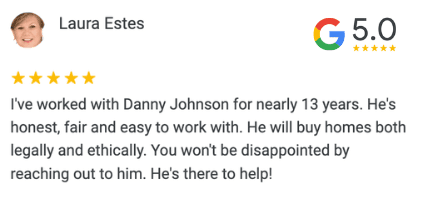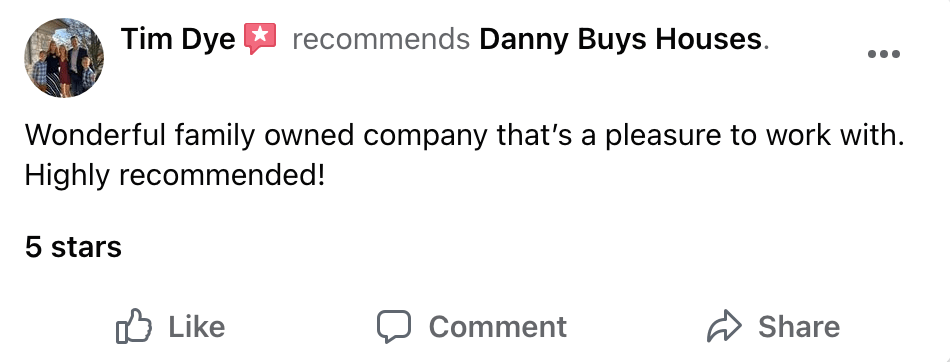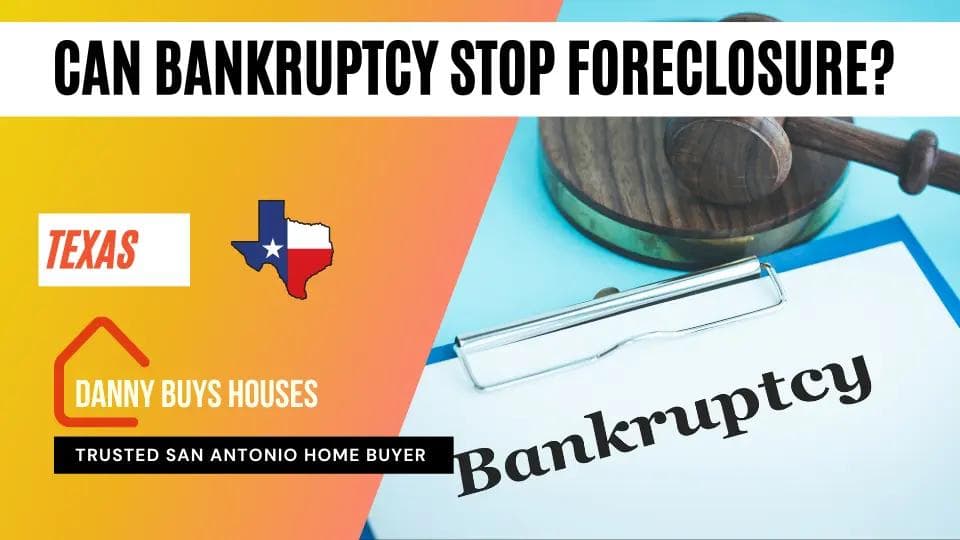
Can Bankruptcy Really Stop Foreclosure in Texas? Yes, but...
By Danny Johnson | Updated 9/27/2024, 1:51:39 PM
Can bankruptcy really stop foreclosure in Texas? Yes, but understanding the process is key. Get a free consultation to explore your options today!
- Key Takeaways
- Why does bankruptcy stop foreclosure?
- What bankruptcy is best for foreclosure?
- Chapter 7 Bankruptcy to Stop Foreclosure
- Temporary Relief Through Automatic Stay
- Limitations in Long-Term Foreclosure Prevention
- Chapter 13 Bankruptcy: A Potential Long-Term Solution
- Does Bankruptcy Stop Foreclosure in Texas?
- Immediate Effects of Filing Bankruptcy
- Long-Term Considerations
- Alternatives to Bankruptcy for Stopping Foreclosure
- Loan Modification
- Short Sale
- Deed in Lieu of Foreclosure
- Solution: Sell to a Cash House Buying Company
🗂 Table of Contents
The fear of losing your home is overwhelming. I've seen the worry in homeowners' eyes when they fall behind on their payments in Texas. It's a tough experience that no one wants to go through. But, there's hope.
Bankruptcy can be a lifeline for those drowning in debt and facing foreclosure. It can give you time to get your finances back on track. But, it's not a magic solution. Knowing how bankruptcy works to avoid foreclosure is important. But, you also must know that it doesn't solve all the problems associated with foreclosure.
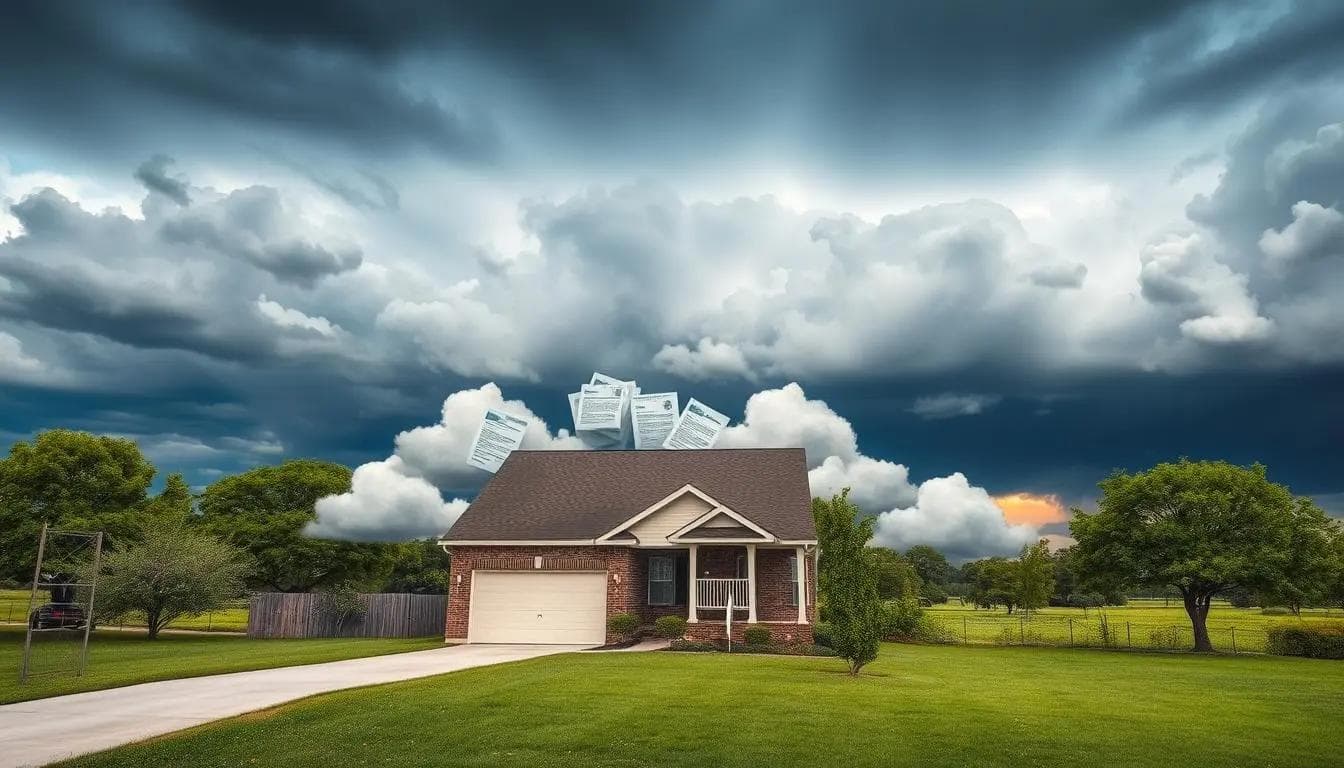
How does bankruptcy stop the foreclosure?
Filing for bankruptcy triggers an automatic stay. This stops creditors from pursuing debt collection, including foreclosure. It gives homeowners struggling with mortgage payments a much-needed break. But, it's important to remember that bankruptcy doesn't protect your house forever.
Different types of bankruptcy offer different levels of protection and benefits. Chapter 7 can give quick debt relief, while Chapter 13 might be better for saving your home. The right choice depends on your financial situation and goals.
We will also talk about another option that could help you without harming your credit as much as bankruptcy does. This option is selling the house quickly for cash to a real estate investor.
Key Takeaways
- Bankruptcy can temporarily stop foreclosure in Texas
- An automatic stay halts creditor actions upon filing
- Different bankruptcy types offer varying levels of protection
- Bankruptcy doesn't permanently prevent foreclosure
- It can be used as a last-minute option before foreclosure auction
- Selling your house during bankruptcy is possible
- Consult with a bankruptcy attorney for personalized advice
Why does bankruptcy stop foreclosure?
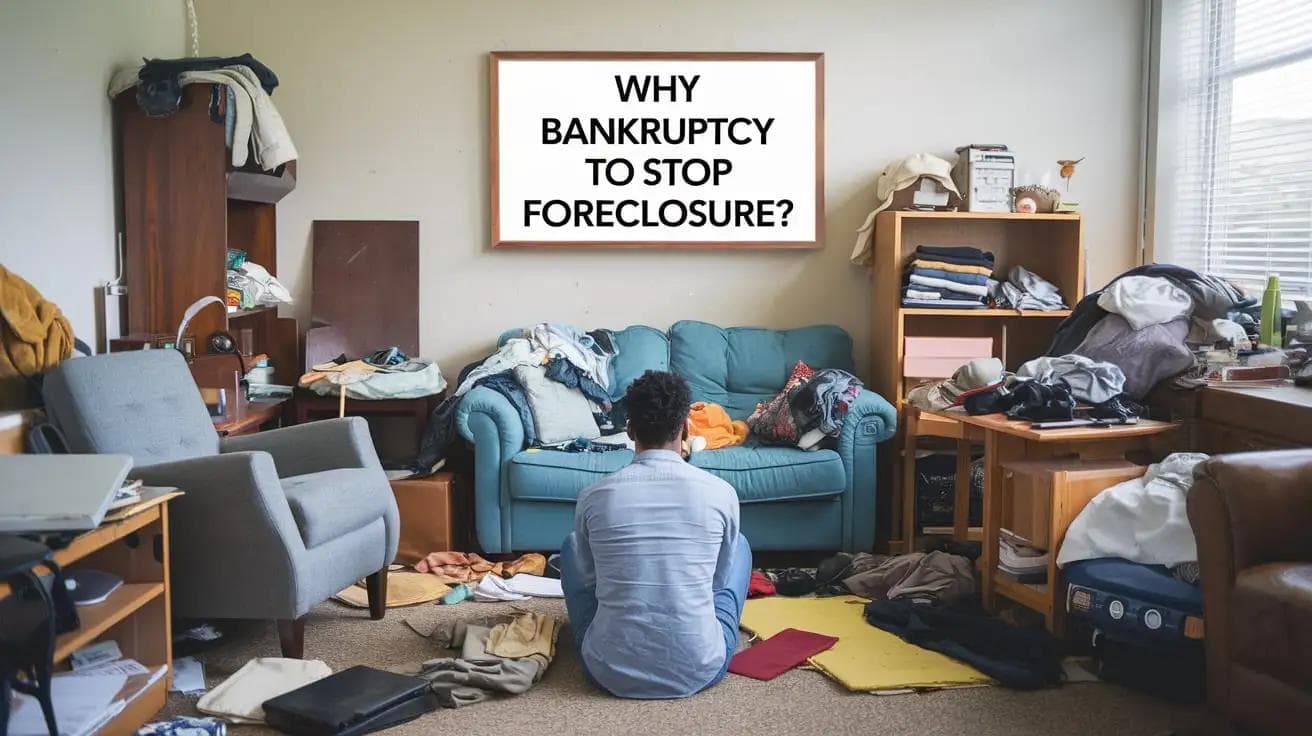
Bankruptcy stops foreclosure with a powerful tool called the automatic stay. When you file for bankruptcy, the court issues this stay right away. It acts like a shield, protecting you from creditors and their actions to collect.
The automatic stay stops foreclosure in its tracks. This gives you time to think about your next steps. It works for both judicial and non-judicial foreclosures in Texas.
Here's how the automatic stay works:
- It stops creditors from contacting you about debts
- It pauses any ongoing foreclosure proceedings
- It prevents new foreclosure actions from starting
The bankruptcy court enforces this protection. Creditors who break the stay face serious consequences. This makes the automatic stay a strong tool for homeowners facing foreclosure.
The automatic stay is only temporary. In Chapter 7 bankruptcy, it might just delay foreclosure. But in Chapter 13, it can give you time to catch up on payments. This can be a lifeline for homeowners struggling to keep their homes.
According to Chance M. McGhee, a San Antonio Bankruptcy Attorney, "While bankruptcy can postpone foreclosure, it has serious credit consequences that linger. Your credit score can drop 200+ points. And the foreclosure will still damage your credit once the bankruptcy concludes. Factor in the bankruptcy filing costs of around $1,500. Plus, a Chapter 13 repayment plan leaves less income available for living and other debts."
Remember, bankruptcy is a complex process. While it can stop foreclosure, it's not a decision to make lightly. Consider seeking legal advice to understand all your options and potential consequences.
What bankruptcy is best for foreclosure?
When facing foreclosure, picking the right bankruptcy is crucial. Both Chapter 7 and Chapter 13 offer ways to stop foreclosure and get debt relief. But they work in different ways.
Chapter 7 bankruptcy is fast and doesn't require a repayment plan. In Texas, you can keep your home thanks to homestead exemptions. This can pause foreclosure, giving you time to look for other options.
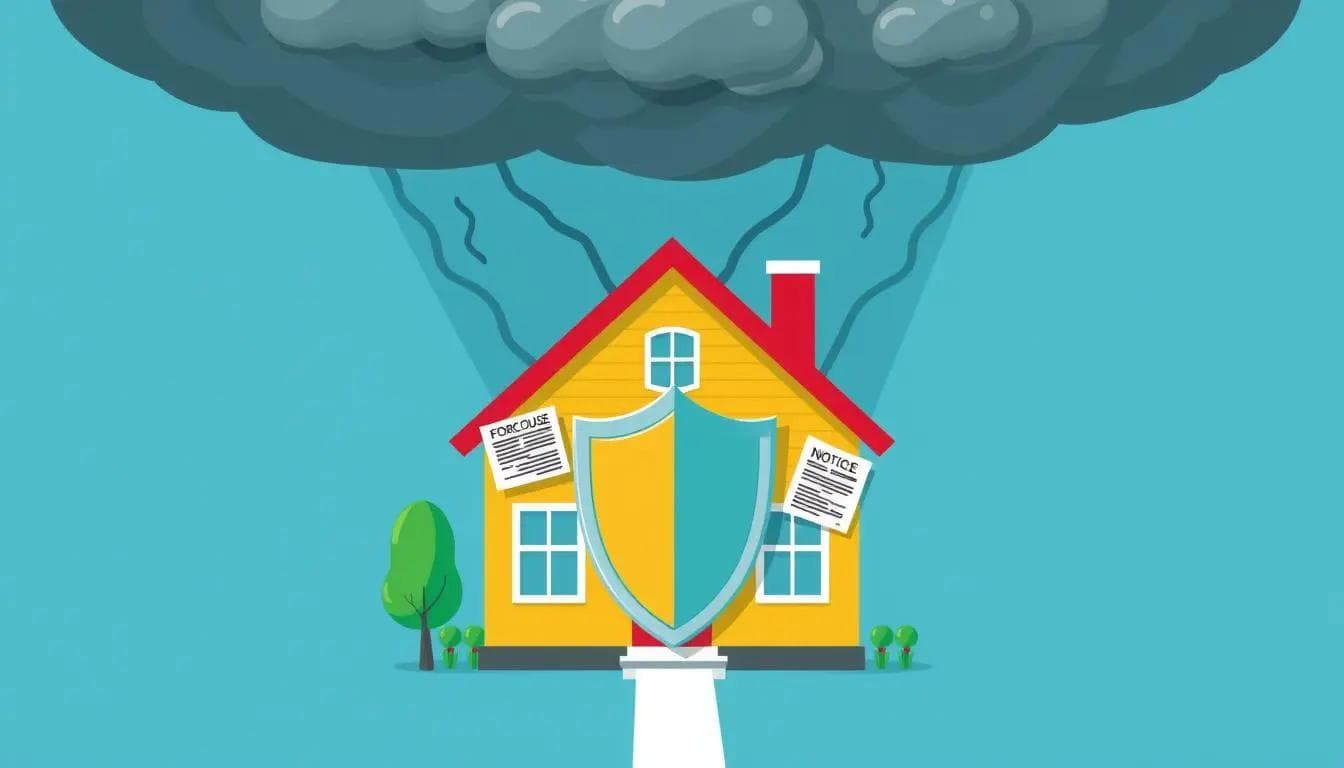
Chapter 13 bankruptcy is better for long-term solutions. It includes a 3-5 year plan to pay off mortgage arrears. This can help you keep your home by restructuring debts, but you must make payments for years.
- Chapter 7: Fast debt relief, temporary foreclosure stop
- Chapter 13: Long-term solution, catch up on mortgage payments
Choosing between Chapter 7 and Chapter 13 depends on your financial situation and goals. Chapter 7 might be good if you're ready to give up your home or can quickly pay off arrears. Chapter 13 is better if you want to keep your home and can stick to a repayment plan.
Chapter 7 Bankruptcy to Stop Foreclosure
Chapter 7 bankruptcy, also known as liquidation, is a short-term fix for homeowners facing foreclosure. It gives a temporary break but doesn't solve the long-term problem of keeping your home.
Temporary Relief Through Automatic Stay
Filing for Chapter 7 starts an automatic stay. This legal shield stops foreclosure and gives you time to breathe. You might look into loan modifications or catch up on mortgage payments during this pause.
The automatic stay usually lasts 3-4 months, the typical time for a Chapter 7 case. This time is key for talking to your lender or finding new housing.
Limitations in Long-Term Foreclosure Prevention
Chapter 7 can delay foreclosure, but it doesn't fix the issue of secured debts like mortgages. Lenders can ask to lift the automatic stay, letting them start foreclosure again after the bankruptcy ends.
According to United States Courts, "The court may deny a chapter 7 discharge for any of the reasons described in section 727(a) of the Bankruptcy Code, including failure to provide requested tax documents; failure to complete a course on personal financial management; transfer or concealment of property with intent to hinder, delay, or defraud creditors;"
After getting a discharge order, you're no longer personally responsible for unsecured debts. But, the mortgage lender can still foreclose if payments aren't made. Chapter 7 doesn't have a repayment plan, making it less effective for long-term foreclosure prevention than Chapter 13 bankruptcy.
Chapter 13 Bankruptcy: A Potential Long-Term Solution
Chapter 13 bankruptcy is the usual choice for homeowners facing foreclosure. It gives you three to five years to pay off mortgage arrears while keeping up with current payments. This is for those with regular income who can handle their mortgage payments and past-due amounts.
The repayment plan in Chapter 13 lets you pay off mortgage arrears over time. This can be a big help for those with unsecured debt and mortgage troubles. After finishing the plan, you might keep your home and clear your debts.
Chapter 13 also has a special feature: mortgage modification mediation. Some courts have programs to make loan modifications easier. This can lead to better loan terms and help you keep your home.
- Restructure debt into a 3-5 year payment plan
- Catch up on missed mortgage payments
- Potential to strip junior mortgages
- Opportunity for loan modification
For homeowners with multiple mortgages, Chapter 13 has another benefit. You can remove junior mortgages as unsecured debt if your home's value is less than the first mortgage. This can greatly reduce your debt and improve your finances.
While Chapter 13 can lower your credit score, it's often better than foreclosure. It helps you keep your home and offers a clear path to financial recovery. Early action and legal advice can greatly improve your chances of success.
But you have to follow the payment plan. If you had trouble making mortgage payments, you will need to make sure you are going to be able to make bankruptcy payments.
According to BankRate, "Skipping a Chapter 13 plan payment can negatively impact your Chapter 13 case. If you miss a payment under the plan, the court can decide to dismiss your case or change your bankruptcy case to Chapter 7. Under a Chapter 7 bankruptcy, the court can liquidate your nonexempt assets to pay your outstanding debts."
Does Bankruptcy Stop Foreclosure in Texas?
Bankruptcy can help homeowners in Texas facing foreclosure. It works with Texas laws and the homestead exemption. Knowing how bankruptcy impacts foreclosure is key for those thinking about it.
Immediate Effects of Filing Bankruptcy
Filing for bankruptcy in Texas stops foreclosure right away. An automatic stay is triggered. This pause gives homeowners a chance to breathe, stopping creditor actions like Texas's nonjudicial foreclosure.
- Automatic stay halts foreclosure proceedings
- Applies to both Chapter 7 and Chapter 13 bankruptcy
- Provides temporary relief from creditor actions
Long-Term Considerations
Bankruptcy offers quick relief but has long-term effects. Chapter 13 lets homeowners pay off missed payments over 3-5 years. This is good for those with steady income. The Texas homestead exemption often lets debtors keep their homes.
But, bankruptcy does hurt your credit score. Weigh the benefits against the long-term impact. Look at other options like loan modification or short sale. Always check notice requirements and understand Texas's foreclosure process before deciding.
Alternatives to Bankruptcy for Stopping Foreclosure
You have options besides bankruptcy. Texas homeowners can explore alternatives before making a big decision. Let's look at ways to work with your lender and possibly save your home.
Loan Modification
A loan modification changes your mortgage terms. It could lower your interest rate, extend the loan, or reduce the principal. The aim is to make payments easier and keep your home equity. Keep in mind, your credit score might drop, but it's less severe than bankruptcy or foreclosure.
Short Sale
A short sale lets you sell your home for less than the mortgage balance. Your lender must agree. It means losing your home but can be better for your credit than foreclosure.
Deed in Lieu of Foreclosure
This option lets you give your property back to the lender. It's quicker than foreclosure and might not hurt your credit score as much. But, you'll lose any home equity you've built.
Each option has its pros and cons. They can impact your financial future in different ways. It's important to understand these before making a choice. Consider getting advice from a housing counselor or legal expert to find the best option for you.
Solution: Sell to a Cash House Buying Company
Are you facing foreclosure in Texas? A quick sale to a cash house buying company could save you. Real estate investors offer fast cash offers to help you pay off debts quickly. This way, you avoid the long wait of traditional selling, often closing in days or weeks.
Cash buyers buy homes as-is, so you don't need to fix them up. This is a big help if you're short on money. Even though cash offers might be lower, they can protect your credit score from foreclosure damage. You'll also save on closing costs and realtor fees.
In Texas, time is critical because of the fast foreclosure process. Selling to a cash buyer quickly can stop foreclosure. It's a simpler choice than bankruptcy or legal battles, giving you a fresh start without a heavy mortgage.
If you would like a no-obligation cash offer within 24 hours, contact Danny Buys Houses. We buy houses in San Antonio, TX as-is and close within a week. Give us a call and we will learn about your situation and create a solution for you to sell your house before foreclosure.

AUTHOR
Danny Johnson
Owner and Founder at Danny Buys Houses
Danny Johnson is an experienced real estate investor who has been buying houses for cash since 2003. As owner of Danny Buys Houses, Danny's goal is to help homeowners sell their house fast, regardless of the situation, so they can move on with their life.
Danny has been featured in publications such as Forbes, Realtor.com, BiggerPockets, Yahoo Finance, US News, and more. He is also the author of the book 'Flipping Houses Exposed'.


